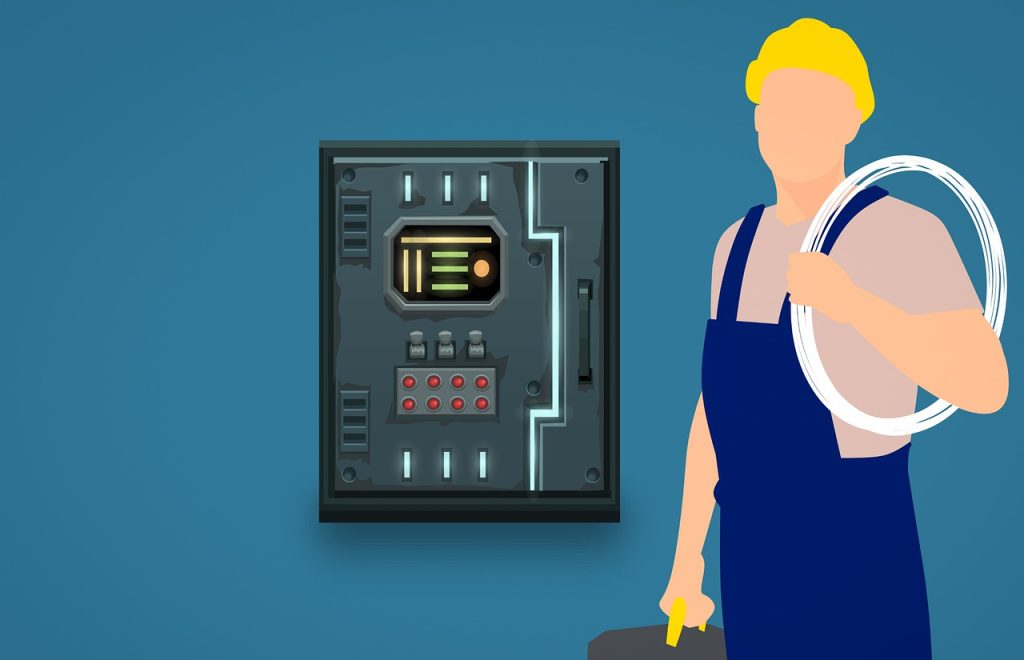Are you an electrician who’s feeling burnt out, uninspired, or dissatisfied with your job? Do you find yourself daydreaming about pursuing a different career or path in life? If so, you’re not alone. Many electricians, like people in any profession, reach a point where they begin to question whether their current job is the right fit for them.
While it can be difficult to make the decision to leave a stable and lucrative career, it’s important to take the time to reflect on your own goals and priorities and to consider whether there might be other opportunities that are better aligned with your passions and aspirations.
In this article, we’ll explore some of the reasons why people might choose to quit being an electrician, as well as some tips and strategies for making a successful transition to a new career or path in life.

Reasons Why I Quit Being An Electrician!
Here are 12 reasons why I quit being an electrician, described in point form:
Lack of job satisfaction: Despite being skilled and trained in the trade, the daily work of an electrician may not provide a sense of fulfillment or enjoyment. This could be due to a variety of factors, such as feeling unchallenged by the work, finding it repetitive or monotonous, or simply not being passionate about the field.
Physical demands of the job: I often work long hours, often standing or crouching in awkward positions, and carrying heavy equipment. Over time, this physical strain can take a toll on the body and lead to chronic pain or injury.
Risk of injury or harm: Working with electricity carries inherent risks, including the potential for electrocution or burns. Even with proper safety precautions, accidents can happen, and some people may feel uncomfortable or anxious about the dangers of the job.
Issues with coworkers or management: Like any job, being an electrician can involve working closely with other people, including fellow tradespeople, contractors, or supervisors. If there are conflicts or personality clashes between these individuals, it can create a stressful or unpleasant work environment.
Limited career advancement opportunities: While I can earn a good living, there may be limited opportunities for career advancement beyond the role of journeyman electrician. Some individuals may feel frustrated by the lack of upward mobility or the sense that their skills and talents are not being fully utilized.
Desire for a change of pace or scenery: Sometimes, people simply feel a need for a change in their lives. This could involve pursuing a different career, moving to a new location, or taking time off to travel or pursue personal interests.
High-stress levels: I often work in high-pressure environments, where I may need to meet tight deadlines or respond to emergency situations. The stress of this work can be challenging for some individuals, and they may feel burnt out or overwhelmed by the demands of the job.
Lack of flexibility: Many electricians work on job sites that are far from their homes or families. This can make it difficult to maintain a work-life balance or to be available for important family events or responsibilities. Some people may find that the rigid schedule of an electrician job does not allow for the flexibility they need in their personal lives.
Inconsistent workload: Depending on the season or the availability of contracts, an electrician’s workload can be highly variable. This can create financial uncertainty or make it difficult to plan for the future. Some people may prefer a more consistent or stable job with reliable hours and pay.
Limited creativity or autonomy: Depending on the specific job or project, an electrician may not have a lot of room to exercise their creativity or decision-making skills. They may be given strict instructions to follow, leaving little room for personal input or innovation. Some people may find this restrictive and prefer a job that allows them more autonomy or creative freedom.
Environmental factors: Electricians often work in challenging environments, such as hot or cold weather, cramped spaces, or noisy job sites. For some individuals, these conditions can be uncomfortable or even dangerous, and they may prefer a job that offers a more comfortable or safe working environment.
Conclusion | Why I Quit Being An Electrician!
In conclusion, being an electrician can be a rewarding and fulfilling career for many people, but it’s not for everyone. If you’re feeling unhappy or unfulfilled in your job, it’s important to take the time to reflect on your own priorities and goals and explore other opportunities that might better align with your passions and aspirations.
Whether you choose to pursue a different career in the trades, switch to a new industry altogether, or start your own business, there are many paths that can lead to a fulfilling and rewarding career. By being proactive, taking risks, and following your dreams, you can find a career that not only pays the bills, but also brings you joy, fulfillment, and a sense of purpose.
